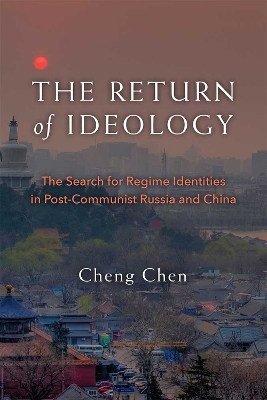As a nation makes the transition from communism to democracy oranother form of authoritarianism, its regime must construct not onlynew political institutions, but also a new political ideology that canguide policy and provide a sense of mission. The new ideology is crucialfor legitimacy at home and abroad, as well as the regime’s long-termviability. In The Return of Ideology, Cheng Chen compares postcommunistregimes, with a focus on Russia under Putin and post-DengChina, investigating the factors that affect the success of an ideology-buildingproject and identifies the implications for international affairs.
Successful ideology-building requires two necessary—but not sufficient—conditions. The regime must establish a coherent ideological repertoirethat takes into account the nation’s ideological heritage and fresh surgesof nationalism. Also, the regime must attract and maintain a strongcommitment to the emerging ideology among the political elite.
Drawing on rich primary sources, including interviews, surveys, politicalspeeches, writings of political leaders, and a variety of publications, Chenidentifies the major obstacles to ideology-building in modern Russiaand China and assesses their respective long-term prospects. Whereascreating a new regime ideology has been a protracted and difficultprocess in China, it has been even more so in Russia. The ability to forgean ideology is not merely a domestic concern for these two nations, but amatter of international import as these two great powers move to assertand extend their influence in the world.
- ISBN13 9780472119936
- Publish Date 6 July 2016
- Publish Status Active
- Publish Country US
- Imprint The University of Michigan Press
- Format Hardcover
- Pages 234
- Language English
